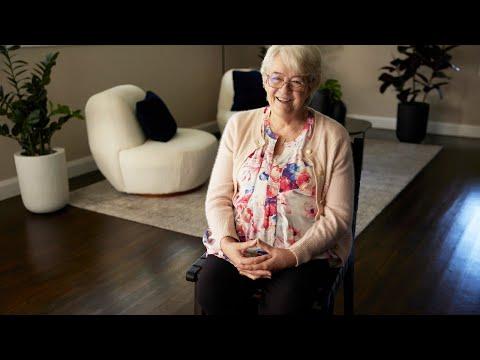Transcript
[Beginning of recorded material]
Dr Dimity: As a person who is at an age where I'm thinking, “will I get dementia?” It's a very tricky word to use, and I often start by talking about memory problems, but with a full intention of working through to talking about dementia, Alzheimer's disease, and so on.
I think it's really important for us to understand that it is very difficult for people to have a good quality of life when they've got undiagnosed dementia, even early dementia. Certainly, we need to know more about dementia, how it presents, how we can treat it, but I think another set of gaps is around our attitudes and our feelings about dementia. We know that, at the moment, we don't have a cure, and as health professionals, we don't like that. We want to be able to help people, so what we are looking at, really, is trying to alleviate symptoms as much as possible, and support people along the way.
If there's a diagnosis, then at least you know what you're dealing with, and you can start to plug into the services. We, in general practise, have the big advantage of seeing people frequently, and I think we really need to get people back fairly regularly with a family carer, if possible. That's where I think we can start to talk about, perhaps, different stages of dementia or different ways in which it might affect people. However, it's also important for us to recognise that our patient there is the person with dementia. We need to talk to them. We need to seek permission to talk to the carer. We should not be ignoring someone just because they've got a diagnosis of dementia. They don't lose their capacity to be a human being just because they've received a diagnosis from someone in a memory clinic.
Once people have been diagnosed with dementia, they're often at a bit of a loss as to what this actually means for them. I think it's really important for the GP to be able to signpost. It's not something that you can ignore, but you can function very well with support, and we should be able to plug people into those supports, and that's where Dementia Australia and other organisations come in to help.
I would definitely recommend healthcare professionals to contact Dementia Australia themselves and experience what it's like to talk to them, but also, just to find out what's on offer in our local area for our patients and the carers. You could give a much more authentic referral to someone referring them to talk to Dementia Australia if you've done it yourself as a health professional.
[Title card]
Dementia Australia logo
We’re here to support you and your patients.
Dementia.org.au/referral
[End of Title card]
[END of recorded material]
